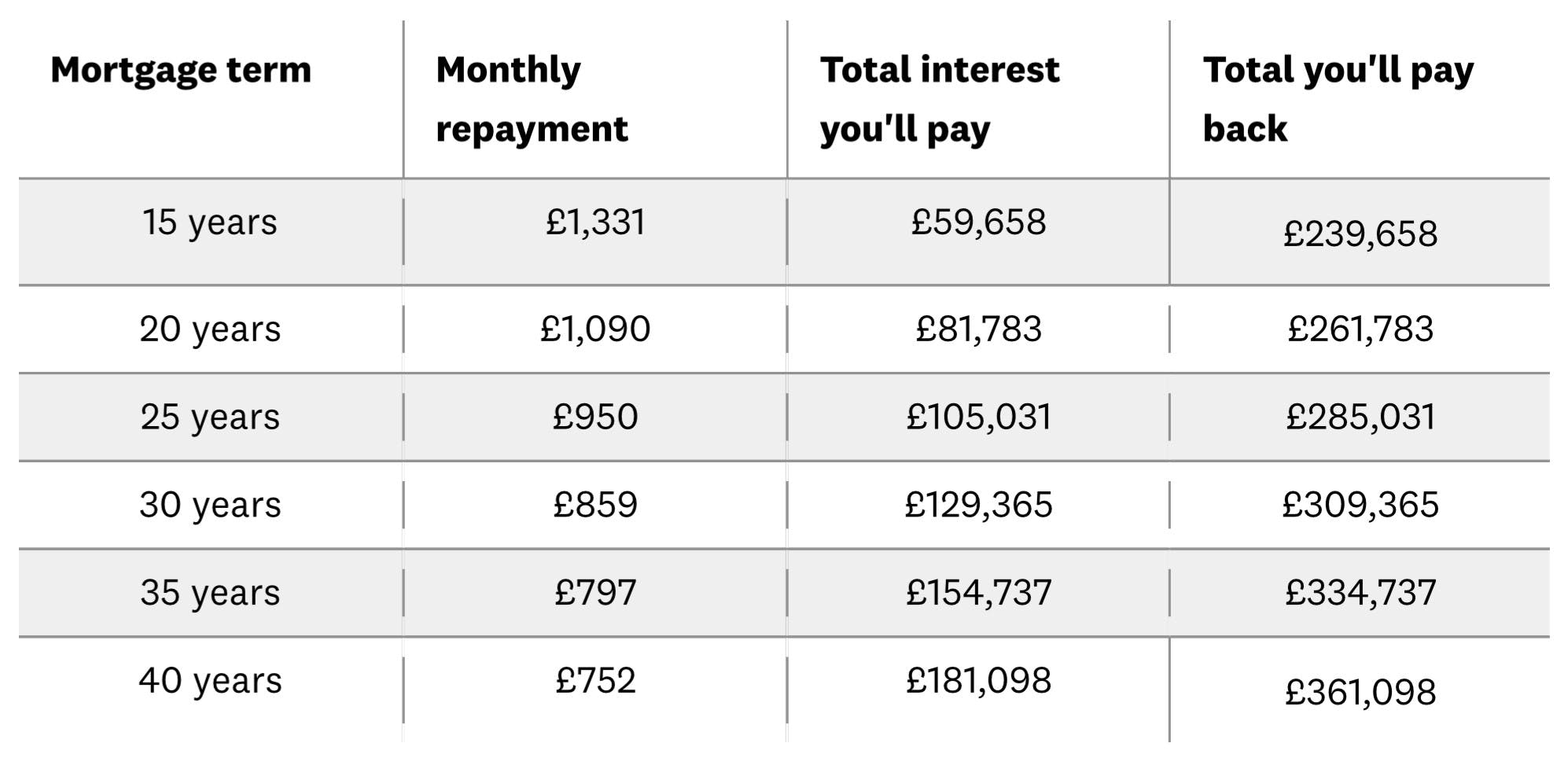Back in the 1970s, 80s and 90s interest rates frequently rose, and frequently fell yet the standard mortgage term for the majority remained static at 25 years. It didn’t seem to matter whether it was interest only, repayment or the then fashionable endowment method, 25 years it was for everyone.
As we entered the new millennium the 25 year benchmark went to 30 years, then 35 became available and today we have 40 year terms – HSBC being the latest to add this to their armoury a couple of days ago.
It got me thinking about the amount of interest paid on longer term mortgages versus shorter term. I remember talking to my first ever estate agency boss about advice from his accountant to make monthly overpayments on his mortgage whenever he could, and he’d be surprised how quickly his 25 year term would reduce. In fact, for a relatively modest monthly increase, he paid his mortgage off in just under 15 years – lucky for him!
So, exactly how much more do you pay if you extend the term of your mortgage? I found this graph in a recent Which article based on a £180,000 mortgage at a 4% interest rate. Average rates are obviously higher than 4% today so the change would be even more profound.

And there you have it, by not quite doubling your mortgage payment, a 40 year term reduces to 15 years and the interest element is one third of what it would be for the longer term. Of course, few people would be in a position in today’s world to make those kind of overpayments but it does make you sit back and think that if you can find a few extra pounds each month and add those to your mortgage repayment the longer term result can be quite profound – food for thought for all of us.





